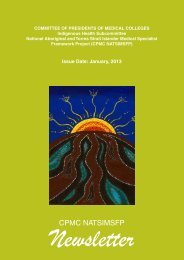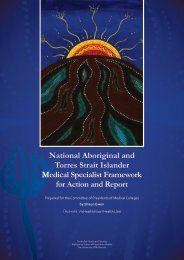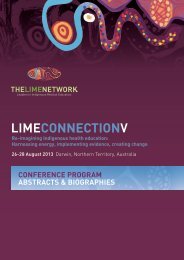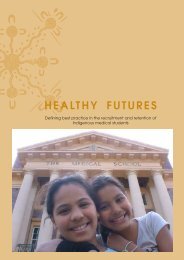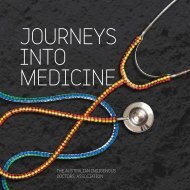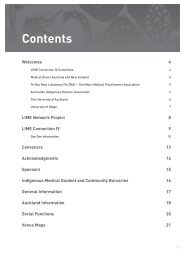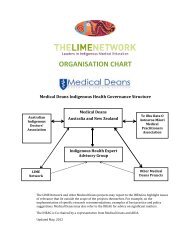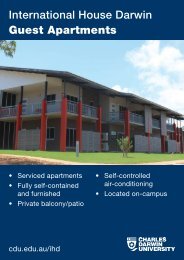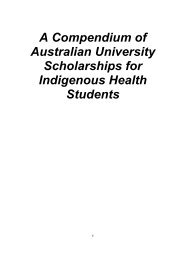abstracts and bios cover_final.indd - LIME Network
abstracts and bios cover_final.indd - LIME Network
abstracts and bios cover_final.indd - LIME Network
You also want an ePaper? Increase the reach of your titles
YUMPU automatically turns print PDFs into web optimized ePapers that Google loves.
Te Ara: A pathway to excellence in Indigenous health teaching <strong>and</strong> learningDr Rhys JonesSenior Lecturer (Medical), Te Kupenga Hauora Māori, The University of Auckl<strong>and</strong>AbstractMedical <strong>and</strong> other health professional education programmes have a responsibility to ensure that theirgraduates can contribute to reducing <strong>and</strong> eliminating inequities in health. It is critical that Indigenous healthcurricula are designed to effectively prepare graduates to meet this challenge.This paper describes a common approach to Māori health curriculum development across the four majorundergraduate health programmes (Medicine, Nursing, Pharmacy <strong>and</strong> Health Sciences) at The University ofAuckl<strong>and</strong>. Drawing on the principles of outcome-based education <strong>and</strong> working with each of the programmes’academic leaders, we developed Te Ara – a shared graduate profile in Māori health. Key learning outcomesinclude the ability to engage appropriately in interactions with Māori individuals, families <strong>and</strong> communities,to explain how ethnic inequalities in health are created <strong>and</strong> maintained (<strong>and</strong> how they may be reduced <strong>and</strong>eliminated), <strong>and</strong> to critically reflect on one’s own practice.Te Ara is now being used to map existing curricula <strong>and</strong> as the framework for a more systematic approachto Māori health teaching, learning <strong>and</strong> assessment. This process will result in curricula that are morecomprehensive, evidence-based <strong>and</strong> transparent for both staff <strong>and</strong> students. It will also provide greateropportunities for interprofessional learning <strong>and</strong> for sharing of insights <strong>and</strong> knowledge across programmes.In this paper we will describe the development of Te Ara, outline progress towards implementation <strong>and</strong>foreshadow some of the key challenges that lie ahead. Principles <strong>and</strong> practical insights from our experienceare broadly applicable in the area of Indigenous health <strong>and</strong> cultural competence education internationally.Presenter: Dr Rhys JonesRhys (Ngāti Kahungunu) is a Public Health Medicine Specialist <strong>and</strong> Senior Lecturerat Te Kupenga Hauora Māori, The University of Auckl<strong>and</strong>. He teaches Māori health atundergraduate <strong>and</strong> postgraduate levels in the Faculty of Medical <strong>and</strong> Health Sciences.He has a leadership role in Māori health curriculum development at the University <strong>and</strong>is heavily involved in research that seeks to advance Indigenous health education. Rhysis also Māori Director of Training for the New Zeal<strong>and</strong> Public Health Medicine trainingprogramme <strong>and</strong> past Chairperson of Te Ohu Rata o Aotearoa (The Māori MedicalPractitioners Association).32



